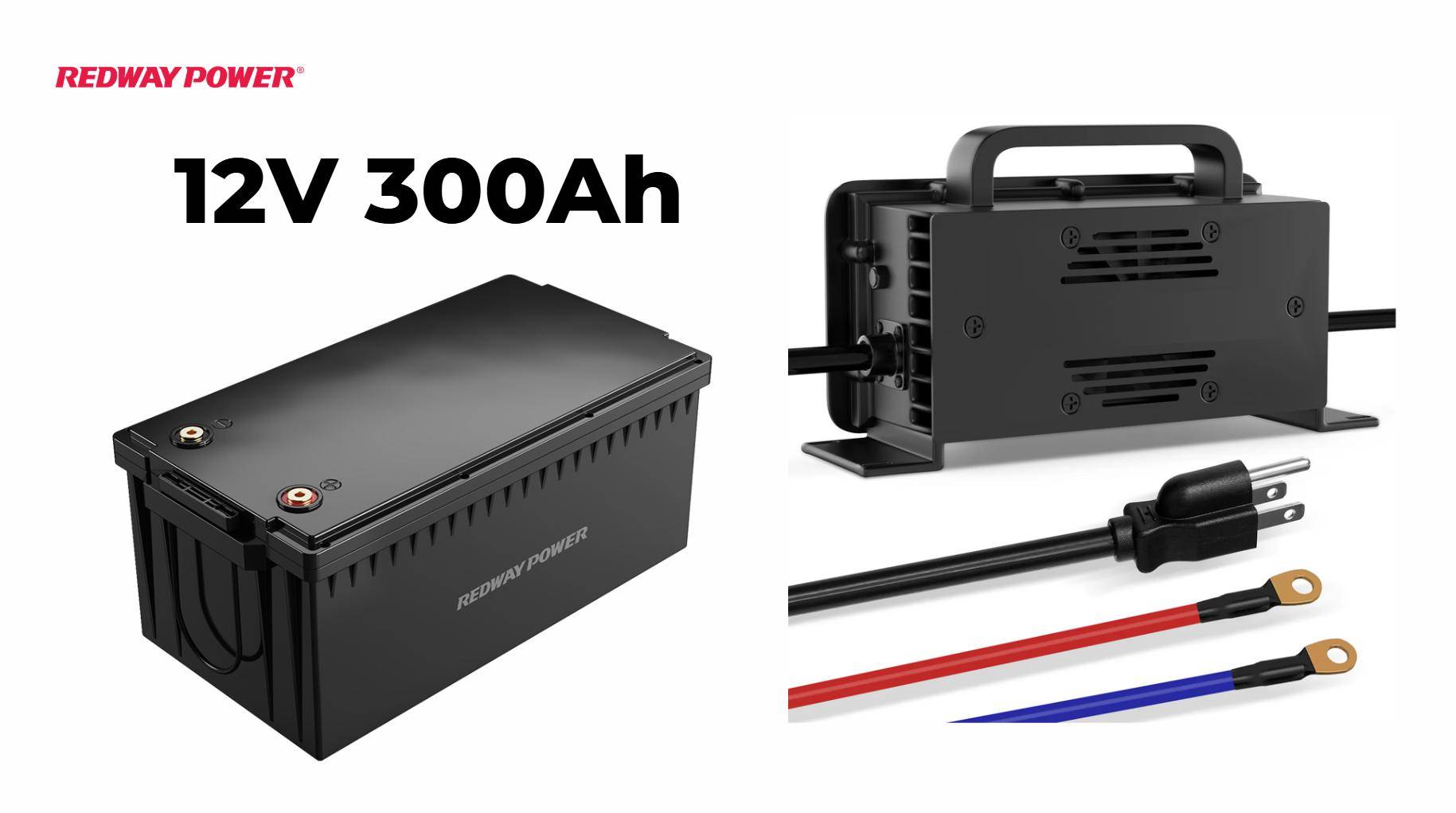- Forklift Lithium Battery
-
48V
- 48V 210Ah
- 48V 300Ah
- 48V 420Ah (949 x 349 x 569 mm)
- 48V 420Ah (950 x 421 x 450 mm)
- 48V 456Ah
- 48V 460Ah (830 x 630 x 590 mm)
- 48V 460Ah (950 x 421 x 450 mm)
- 48V 460Ah (800 x 630 x 600 mm)
- 48V 460Ah (820 x 660 x 470 mm)
- 48V 500Ah
- 48V 560Ah (810 x 630 x 600 mm)
- 48V 560Ah (950 x 592 x 450 mm)
- 48V 600Ah
- 48V 630Ah
-
48V
- Lithium Golf Cart Battery
- 12V Lithium Battery
12V 150Ah Lithium RV Battery
Bluetooth App | BCI Group 31
LiFePO4 Lithium
Discharge Temperature -20°C ~ 65°C
Fast Charger 14.6V 50A
Solar MPPT Charging - 24V Lithium Battery
- 36V Lithium Battery
- 48V Lithium Battery
-
48V LiFePO4 Battery
- 48V 50Ah
- 48V 50Ah (for Golf Carts)
- 48V 60Ah (8D)
- 48V 100Ah (8D)
- 48V 100Ah
- 48V 100Ah (Discharge 100A for Golf Carts)
- 48V 100Ah (Discharge 150A for Golf Carts)
- 48V 100Ah (Discharge 200A for Golf Carts)
- 48V 150Ah (for Golf Carts)
- 48V 160Ah (Discharge 100A for Golf Carts)
- 48V 160Ah (Discharge 160A for Golf Carts)
-
48V LiFePO4 Battery
- 60V Lithium Battery
-
60V LiFePO4 Battery
- 60V 20Ah
- 60V 30Ah
- 60V 50Ah
- 60V 50Ah (Small Size / Side Terminal)
- 60V 100Ah (for Electric Motocycle, Electric Scooter, LSV, AGV)
- 60V 100Ah (for Forklift, AGV, Electric Scooter, Sweeper)
- 60V 150Ah (E-Motocycle / E-Scooter / E-Tricycle / Tour LSV)
- 60V 200Ah (for Forklift, AGV, Electric Scooter, Sweeper)
-
60V LiFePO4 Battery
- 72V~96V Lithium Battery
- Rack-mounted Lithium Battery
- E-Bike Battery
- All-in-One Home-ESS
- Wall-mount Battery ESS
-
Home-ESS Lithium Battery PowerWall
- 24V 100Ah 2.4kWh PW24100-S PowerWall
- 48V 50Ah 2.4kWh PW4850-S PowerWall
- 48V 50Ah 2.56kWh PW5150-S PowerWall
- 48V 100Ah 5.12kWh PW51100-F PowerWall (IP65)
- 48V 100Ah 5.12kWh PW51100-S PowerWall
- 48V 100Ah 5.12kWh PW51100-H PowerWall
- 48V 200Ah 10kWh PW51200-H PowerWall
- 48V 300Ah 15kWh PW51300-H PowerWall
PowerWall 51.2V 100Ah LiFePO4 Lithium Battery
Highly popular in Asia and Eastern Europe.
CE Certification | Home-ESS -
Home-ESS Lithium Battery PowerWall
- Portable Power Stations
How Do I Troubleshoot Issues with My 12V Lithium Battery Not Charging?

Experiencing charging issues with your 12V lithium battery can be frustrating, but diagnosing and resolving these problems is often straightforward. This comprehensive guide outlines effective troubleshooting steps to help you identify the cause and restore functionality.
1. Check Connections
Ensure Tight Connections: Start by inspecting all connections to your battery, including terminals and wiring. Loose or corroded connections can impede proper charging. Firmly wiggle the wires and tighten any loose connections. If connections are clean and secure, move on to the next step.
2. Verify Charger Functionality
Test the Charger: A malfunctioning charger may be the culprit behind your battery not charging. Check if the charger is operational by testing it with another battery. If it fails to charge a different battery, consider replacing the charger to see if this resolves the issue.
3. Assess Battery Voltage
Measure Voltage Levels: Using a multimeter, measure the voltage of your 12V lithium battery. A fully charged battery should read approximately 12.6V or higher. If the reading is significantly lower (below 10V), the battery may have entered low voltage disconnect mode, a protective measure against damage.
4. Reset Low Voltage Disconnect Mode
Resetting the Battery: If your battery features a built-in Battery Management System (BMS) that triggers low voltage disconnect mode, it may require resetting. Connect the battery to a compatible charger or shore power to initiate the reset process. In some cases, an alternator may also be used for this purpose.
5. Check for Correct Charger Settings
Compatibility with Lithium Batteries: Ensure that your charger is suitable for lithium battery technology. Some chargers may require adjustments or upgrades to align with the higher charging specifications of lithium batteries. Always refer to the manufacturer’s guidelines for compatibility.
6. Inspect for Polarity Issues
Correct Connections: It’s crucial to verify that the battery is connected correctly, with positive to positive and negative to negative. Incorrect polarity can prevent charging and potentially damage the battery. Double-check your connections to ensure accuracy.
7. Evaluate Battery Age and Condition
Age and Wear: If your battery has been in service for several years, it may be approaching the end of its operational lifespan. Look for signs of aging, such as diminished capacity or increased internal resistance. If these indicators are present, consider whether a replacement is necessary.
8. Investigate External Factors
Environmental Conditions: Charging a battery in extreme temperatures can adversely affect performance. Avoid attempting to charge your battery in conditions below freezing, as low temperatures can inhibit charging efficiency and safety.
9. Seek Professional Help
Contact Customer Support: If you’ve followed all the above steps and your battery still won’t charge, it may be time to seek professional assistance. Reach out to customer support for your battery brand, as they can provide tailored insights and solutions specific to your model.
Conclusion
By systematically following these troubleshooting steps, you can effectively diagnose and resolve issues with your 12V lithium battery not charging. Regular maintenance and proper usage can extend the life and performance of your battery system, ensuring it remains reliable for all your power needs. If problems persist, do not hesitate to contact a professional for expert assistance.














